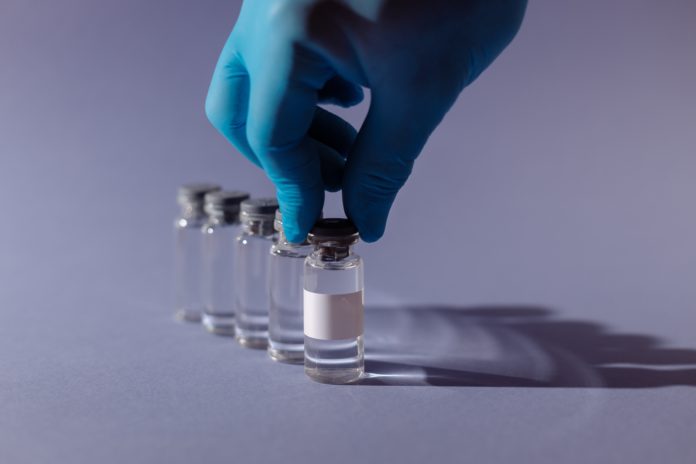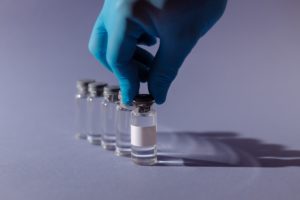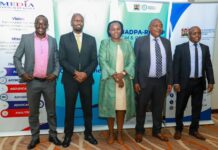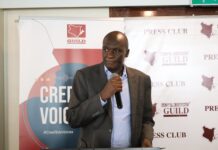By Lenah Bosibori
Nairobi, Kenya: Immunization experts have urged African countries to take tangible actions to ensure the continent has equitable and adequate access to COVID-19 vaccines.
Speaking in Nairobi recently prof. Omu Anzala, professor of virology and immunology said that Africa should start planning logistics and distribution of vaccines instead of being skeptical and hesitant.
“The emerging global issue right now is acceptance of the vaccines, availability and its access, allocate adequate resources to secure an adequate supply of Covid-19 vaccines,” said Anzala who is also the lead researcher at the Kenya Aids Vaccine Initiative at the Institute of Clinical Research (KAVI-ICR).
He urged African policymakers not to worry about the speed or safety and efficacy of vaccines, and instead plan for necessary logistics to ensure the cold chain of the vaccines.
“This is not going to be the standard cold chain we know about the other vaccines. So, we want to appreciate African countries putting together logistics for the cold chain and beginning to plan how these vaccines arrive locally,” adds Anzala.
According to Anzala, the cold chain required for the distribution of the vaccine is not going to be similar to the usual child vaccines.
“As a medical doctor, I know very well that the best hope for controlling any infectious disease is a vaccine. Even in places where we have treatment, people die but vaccines save lives,” added Anzala.
Prof. Anzala, one of Africa’s leading virologists, reiterated the significance of prioritizing who should get the vaccine first, once it becomes available. He said it is critical for people at higher risk of getting infected and experiencing complications to be considered first.
“This is subject policymakers and experts should promptly discuss”, he noted.
‘‘We have a problem of anti-vaccine lobby groups that need to be discussed and addressed,” he said, recalling the confusion created in Kenya when the catholic clergy mounted a protracted anti-polio vaccination campaign that delayed the much-needed polio vaccination process.
He adds that the healthcare professionals, opinion leaders, clerics, policymakers, and the media should be tapped to help educate the public on the safety and efficacy of vaccines in order to avoid misconceptions and mistrust of life-saving vaccines.
Prof. Anzala is urging East African nations to come together and negotiate for vaccines as a consortium so that they can get price concessions due to large quantities ordered.
“It is dangerous for African countries not to allocate enough funds to purchase the vaccines, pinning their hopes on donors. Developed countries are doing the opposite. They have already started allocating resources to buy and distribute the vaccines. The United Kingdom, for example, has preordered 195 million doses of the AstraZeneca vaccine for its citizens,” he added.
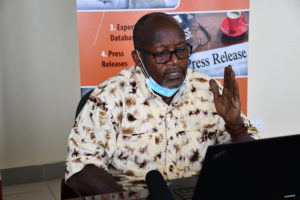
He called upon African countries to conduct clinical trials of the vaccines in their populations.
“Currently in Africa, South Africa, and Kenya is participating in the Oxford University vaccine trials, prof. Anzala, noted, adding “It would also be appropriate to test the Pfizer and Moderna vaccines to better understand their performance in an African setting.”
He cautioned that even more infections are likely to be recorded in Africa due to super spreader events, such as crowding in bars, homes, eateries, weddings, and parties, as the festive season approaches.
“The continent can only slow down the second wave of infection if stricter measures are taken to ensure that all health protocols are adhered to
He said, one key issue is how vaccines can adapt to Africa’s existing distribution frameworks. For example, the freezers that can store some vaccines at the required -70-degree Celsius temperature rarely found in Africa.
“If it all goes well, I see towards the end of first quarter 2021 two vaccines that are in frontline could be available, but this could be expedited if African countries start budgeting to purchase the vaccines,’’ Anzala said.
He indicated that the African Union is interested in negotiating to fund access to vaccines without necessarily depending on the donor community.

